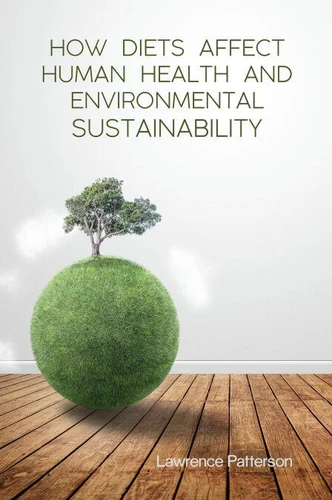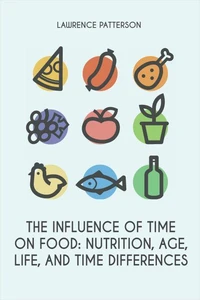How Diets Affect Human Health and Environmental Sustainability
Par :Formats :
Disponible dans votre compte client Decitre ou Furet du Nord dès validation de votre commande. Le format ePub est :
- Compatible avec une lecture sur My Vivlio (smartphone, tablette, ordinateur)
- Compatible avec une lecture sur liseuses Vivlio
- Pour les liseuses autres que Vivlio, vous devez utiliser le logiciel Adobe Digital Edition. Non compatible avec la lecture sur les liseuses Kindle, Remarkable et Sony
 , qui est-ce ?
, qui est-ce ?Notre partenaire de plateforme de lecture numérique où vous retrouverez l'ensemble de vos ebooks gratuitement
Pour en savoir plus sur nos ebooks, consultez notre aide en ligne ici
- FormatePub
- ISBN8201498320
- EAN9798201498320
- Date de parution15/08/2021
- Protection num.pas de protection
- Infos supplémentairesepub
- ÉditeurJL
Résumé
"Only after the last tree has been cut down. Only after the last river has been poisoned. Only after the last fish has been caught, only then will you find that money cannot be eaten". Cree Indian ProphecyIn this book, you can learn how global dietary transitions towards diets higher in calories, meat, dairy, eggs, and processed foods will likely decrease human health and environmental sustainability when combined with population growth.
Instead, switching diets away from foods that are associated with poor health and have high environmental impacts and instead towards foods with better health outcomes and lower environmental results would likely improve diet-related human and ecological health. Finding ways to shift diets in these ways will be difficult but possibly necessary to avoid significant increases in poor health and environmental degradation.
Taxes, education initiatives, food labeling, and changes in the food environment have successfully shifted diets to healthier. They might also be effective at moving diets to become more sustainable. Additionally, because the effectiveness of these policies often increases through time, further implementation of these and other policies shortly would likely maximize the chance of a healthier and more sustainable future.
Instead, switching diets away from foods that are associated with poor health and have high environmental impacts and instead towards foods with better health outcomes and lower environmental results would likely improve diet-related human and ecological health. Finding ways to shift diets in these ways will be difficult but possibly necessary to avoid significant increases in poor health and environmental degradation.
Taxes, education initiatives, food labeling, and changes in the food environment have successfully shifted diets to healthier. They might also be effective at moving diets to become more sustainable. Additionally, because the effectiveness of these policies often increases through time, further implementation of these and other policies shortly would likely maximize the chance of a healthier and more sustainable future.
"Only after the last tree has been cut down. Only after the last river has been poisoned. Only after the last fish has been caught, only then will you find that money cannot be eaten". Cree Indian ProphecyIn this book, you can learn how global dietary transitions towards diets higher in calories, meat, dairy, eggs, and processed foods will likely decrease human health and environmental sustainability when combined with population growth.
Instead, switching diets away from foods that are associated with poor health and have high environmental impacts and instead towards foods with better health outcomes and lower environmental results would likely improve diet-related human and ecological health. Finding ways to shift diets in these ways will be difficult but possibly necessary to avoid significant increases in poor health and environmental degradation.
Taxes, education initiatives, food labeling, and changes in the food environment have successfully shifted diets to healthier. They might also be effective at moving diets to become more sustainable. Additionally, because the effectiveness of these policies often increases through time, further implementation of these and other policies shortly would likely maximize the chance of a healthier and more sustainable future.
Instead, switching diets away from foods that are associated with poor health and have high environmental impacts and instead towards foods with better health outcomes and lower environmental results would likely improve diet-related human and ecological health. Finding ways to shift diets in these ways will be difficult but possibly necessary to avoid significant increases in poor health and environmental degradation.
Taxes, education initiatives, food labeling, and changes in the food environment have successfully shifted diets to healthier. They might also be effective at moving diets to become more sustainable. Additionally, because the effectiveness of these policies often increases through time, further implementation of these and other policies shortly would likely maximize the chance of a healthier and more sustainable future.




